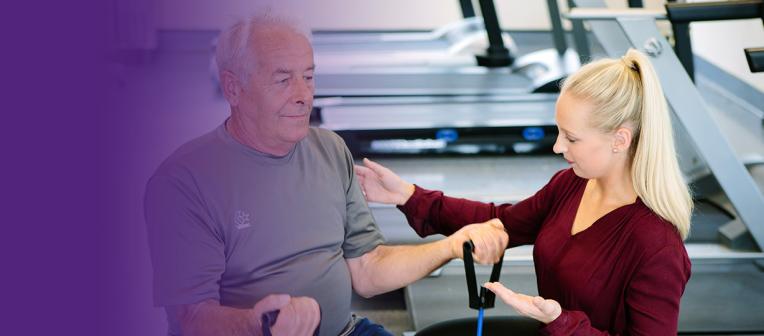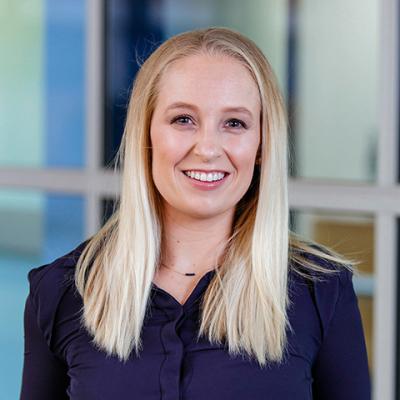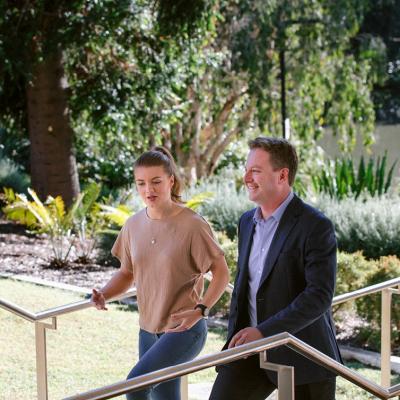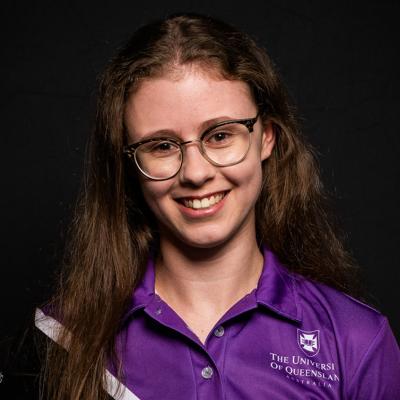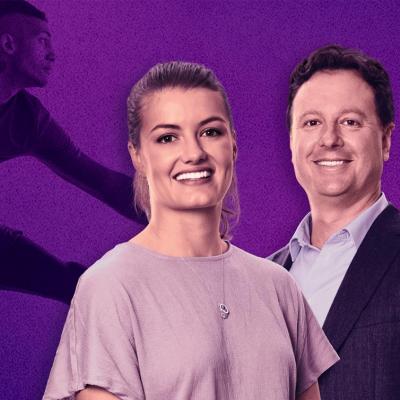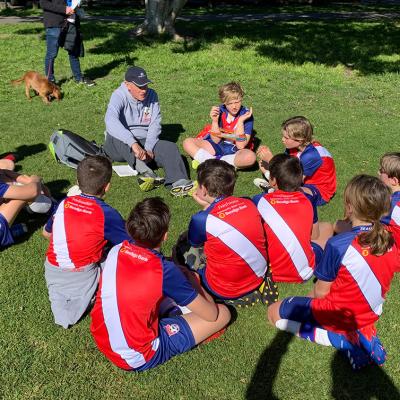So, you've heard of a clinical exercise physiologist, but you're not quite sure what a career like that entails. Join Kirsten Adlard, Practicum and Clinical Education Manager at UQ's School of Human Movement and Nutrition Sciences, as she explores exactly what a Clinical Exercise Physiologist does.
Clinical exercise physiologists (CEPs) have a vital role to play in the healthcare system and are the fastest-growing group of allied health professionals in Australia. CEPs are the experts in prescribing the right exercise to help people prevent and/or manage chronic diseases, recover faster from surgery or an injury, or help people maintain a healthy lifestyle.
What do clinical exercise physiologists do?
CEPs assess, prescribe, supervise and monitor exercise and lifestyle programs designed to achieve specific health outcomes for individuals with a broad range of pathological conditions.
Working in collaboration with a patient’s general practitioner and other healthcare professionals (such as physiotherapists, dietitians, psychologists, occupational therapists and medical specialists), CEPs develop an exercise program based on a patient’s current medical status to ensure the exercise program is both safe and effective in achieving the required health goals. They also provide advanced health and physical activity education, advice, motivation and support to help people lead a healthy and active lifestyle.
A day in the life of a clinical exercise physiologist can be incredibly varied.
For example, they might start with a patient they're seeing for long-term rehabilitation of a knee injury they sustained playing rugby, prescribing appropriate exercises at the right time and intensity for recovery.
Next minute, they could see a patient with obesity and diabetes who is aiming to improve their body composition and stabilise their blood sugar with suitable cardiorespiratory and strength-based training.
At the end of the day, a CEP could also see an elderly patient who has dementia, osteoporosis and arthritis, taking them through an exercise program aimed at reducing their risk of falls while managing their joint pain.
What makes clinical exercise physiologists different to other exercise professionals?
- They are university-qualified.
- In Australia, CEPs undertake strict accreditation requirements with Exercise and Sports Science Australia (ESSA).
- They are eligible to register as a provider with Medicare Australia, the National Disability Insurance Scheme, the Department of Veterans’ Affairs and WorkCover, and they are recognised by most private health insurers.
- They can treat and work with all people – from those who want to improve their health and wellbeing, to those with or at risk of developing and chronic illness or injury.
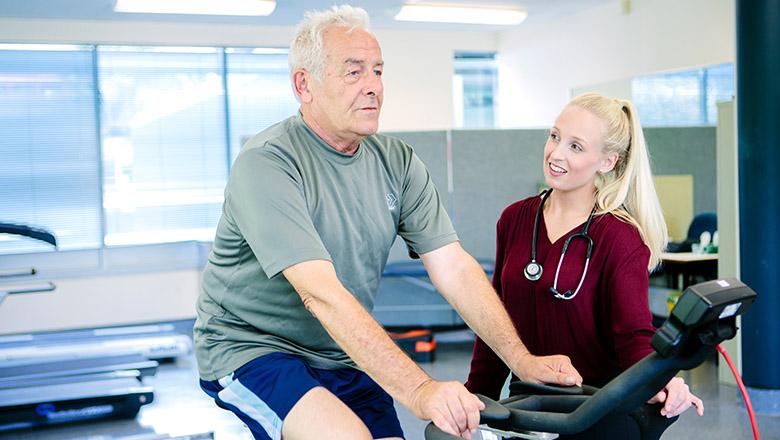
Who do clinical exercise physiologists help?
Exercise can be used as medicine to help prevent and manage a wide range of chronic conditions.
As part of a multidisciplinary team, CEPs provide support for people with:
- musculoskeletal conditions
- obesity
- cardiovascular disease
- diabetes
- osteoporosis and arthritis
- mental health conditions
- cancer
- chronic pain and fatigue
- post-surgical rehabilitation
- neuromuscular exercise therapy (multiple sclerosis, cerebral palsy, Parkinson’s)
- pulmonary disease.
"Most importantly, they help people (regardless of their health state) to move and exercise their way to a healthier lifestyle."
Where do Clinical Exercise Physiologists work?
CEPs work in a number of environments including:
- public and private hospitals settings
- primary, secondary and tertiary health care
- private and multidisciplinary clinics
- population health
- workplace health and rehabilitation
- ageing and aged care facilities
- fitness centres, gymnasiums, business
- sporting settings.
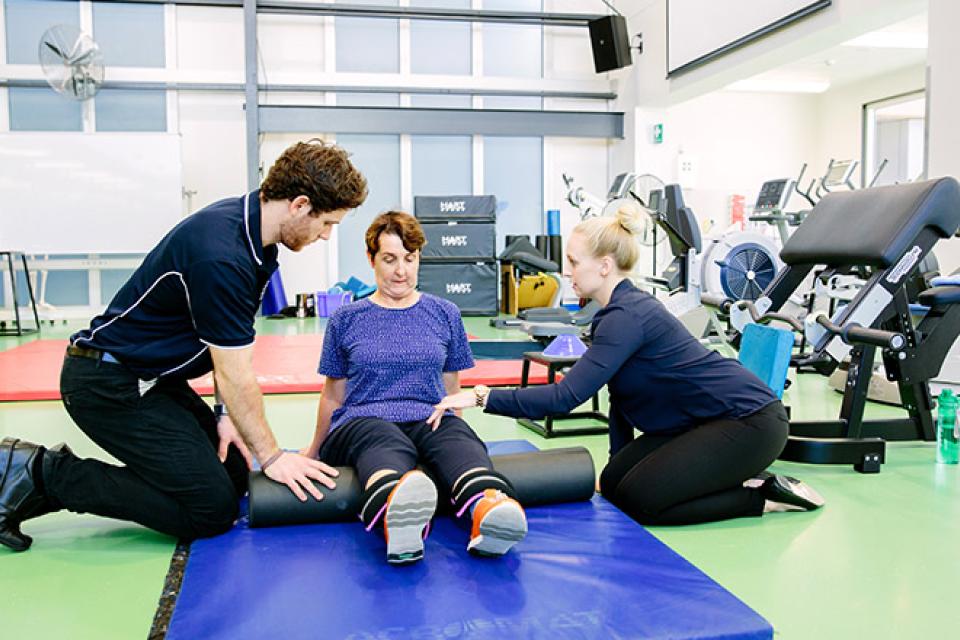
Is clinical exercise physiology a good career?
Clinical exercise physiology is a hands-on field that is rapidly gaining momentum and value in the healthcare sector. With an ageing population, we have a growing number of people living longer – inevitably, a large proportion of these people are suffering from chronic diseases, illness or injury.
It is all well and good to live a long life, but what about a strong life? This is where a CEP can step in – we can ensure these lives are not just long, but are also healthy, happy and able to be enjoyed. Overall, being a CEP is a very rewarding career that can see you working in many different environments, with many different people.
Why study clinical exercise physiology at UQ?
The University of Queensland is regarded as one of the best universities in Australia and internationally for studying clinical exercise physiology. In fact, UQ is ranked number 1 in Australia and number 2 in the world for sports-related subjects (QS World University Rankings 2021). Students who graduate from the UQ Clinical Exercise Physiology program are given a head-start into the healthcare industry by:
- learning in state-of-the-art exercise science and physiology facilities (including specialised biomechanics, motor control, exercise physiology, and strength and conditioning laboratories)
- developing clinical skills under the supervision of highly experienced educators who have extensively worked and/or researched in the field.
The Clinical Exercise Physiology program at UQ is unique because of the focus on interprofessional education and technical proficiency, and the hands-on experience you’ll gain as you complete the program. In your second year, you’ll study exercise prescription and programming and exercise science professional skills, where you’ll get your first taste of a hands-on experience delivering exercise programs to clients.
Throughout the program, you’ll also have opportunities to:
- participate in volunteer work
- take part in site visits to different exercise physiology clinics
- complete a thesis
- get involved in a summer or winter research project.
During your studies, you'll embark on a total of over 600 hours of practical experiences through our specialised on-campus clinics and external industry-based placements. This experience is designed to develop your clinical skills and optimise your exposure to a wide range of work settings, clientele and practitioners. For many students, this can lead directly to future employment.
During your placements, you will have the opportunity to apply your theoretical knowledge acquired through coursework to practise and develop your clinical skills in a real-life setting. Thanks to the program coursework and these practical experiences, when you graduate, you can gain accreditation with Exercise and Sports Science Australia (ESSA) as both an Accredited Exercise Physiologist and Accredited Exercise Scientist.
Take your first step on this rewarding career path. Learn more about UQ's Bachelor of Clinical Exercise Physiology (Honours).

